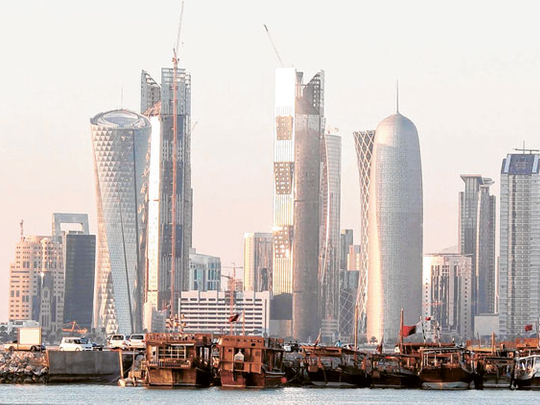
The competitiveness of the Qatari economy is being increasingly recognised at global levels, and for good reasons. Qatar already outsmarts all countries in the Middle East and North Africa (Mena) region on the Global Competitiveness Index.
The new addition relates to the country securing a ranking of No 8 globally on the 2011 World Competitiveness Yearbook (WCY) amongst 59 economies reviewed in the study, whose results were released only last week. The international business school of IMD, located in Switzerland, publishes the annual survey.
This suggests that Qatar has improved its ranking by seven notches, as the country ranked No 15 in the 2010 version of WCY, undoubtedly remarkable progress in a single year.
The extraordinary result suggests that only seven economies, namely Hong Kong, USA, Singapore, Sweden, Taiwan and Canada, are more competitive than Qatar. The credit relates to overall macroeconomic performance as well as the efficiency of the public and private sectors. Projected spending for fiscal year 2011-2012, which started in April, amounts to a record $38.5 billion (Dh141 billion). The figure is up by 25 per cent compared to an earlier record spending plan in fiscal year 2010-2011.
Still, stronger than projected revenues should present the authorities with an opportunity to further increase spending, as the budget was prepared with a conservative oil price of $55 per barrel. This figure is uniquely below prevailing market rates, with some forecasts calling for an average rate of $107 per barrel for 2011. The petroleum sector is the main source of treasury income, similar to other Gulf Cooperation Council (GCC) countries,
Nevertheless, Qatar lags in the infrastructure variable, partly reflecting its congested road network, a problem exacerbated by the inflow of foreign residents on the back of steady economic growth. The IMF, for one, expects Qatar's gross domestic product (GDP) to grow by 20 per cent in 2011, up from 16 per cent in 2010.
Doha Metro
Happily enough, traffic congestion should ease once the Doha Metro is commissioned, as the country prepares to host the World Cup 2022 for the first time in the Mena region. The project is expected to cost around $25 billion, spanning a sphere of 300 kilometres.
Qatar's result in the IMD study falls in line with the country's achievement in the 2010-2011 Global Competitiveness Index (GCI). The GCI survey ranked Qatar No 17 amongst 139 reviewed economies, again the best ranking amongst Mena countries. The World Economic Forum publishes the annual GCI.
The GCI ranks economies on their achievements in three broad categories: basic requirements, efficiency enhancers and innovation and sophistication factors.
In turn, the basic requirements category is divided into institutions, infrastructure, macroeconomic stability, health and primary education. Yet the efficiency enhancers category comprises higher education and training, goods and market efficiency, labour market efficiency, financial market sophistication, technological readiness and market size.
Still, the innovation and sophistication factors category is made up of business sophistication and innovation. The index is developed by using publicly available data and the World Economic Forum's own opinion surveys.
Qatar stands the chance of building on the competitiveness with the preparations to host the World Cup 2022. The country is expected to spend tens of billions of dollars on infrastructure development schemes under the watchful eyes of international entities.
Certainly, global recognition of Qatar adds to the reputation of the GCC as a whole, as the six-nation grouping is bound by a series of integrating econ-omic agreements.
The writer is a Member of Parliament in Bahrain.












